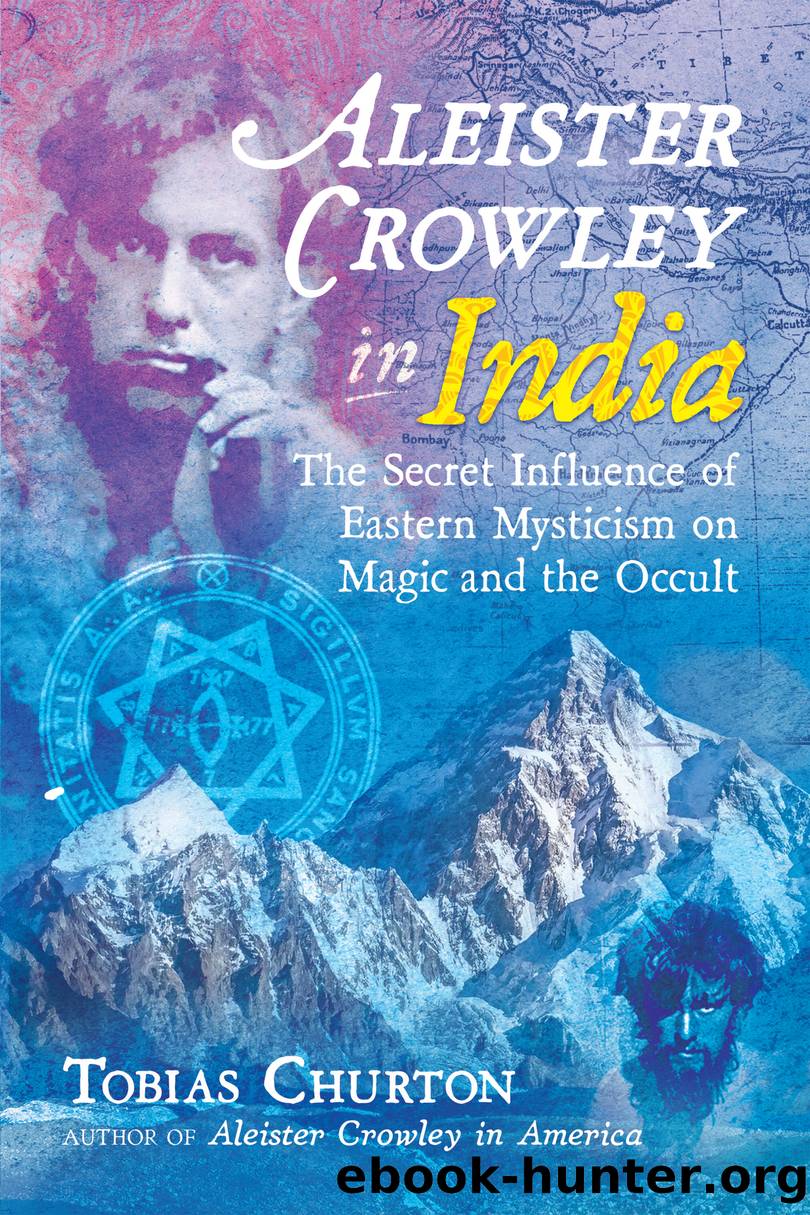Aleister Crowley in India by Tobias Churton

Author:Tobias Churton
Language: eng
Format: epub
Tags: Biography/Occult History
Publisher: Inner Traditions/Bear & Company
Published: 2019-09-21T00:00:00+00:00
Aum! let us meditate aright
On that adorable One Light,
Divine Savitri! So may She
Illume our minds! So mote it be!
After which magnificent climax, it is something of a comedown to read G. K. Chestertonâs review of The Sword of Song, which appeared on its publication in the Daily News. Readers may judge for themselves the appropriateness of Chestertonâs comments on Crowleyâs work:
Mr. Crowley has always been, in my opinion, a good poet; his âSoul of Osiris,â written during an Egyptian mood, was better poetry than his Browningesque rhapsody in a Buddhistic mood; but this also, though very affected, is very interesting. But the main fact about it is, that it is the expression of a man who has really found Buddhism more satisfactory than Christianity. Mr. Crowley begins his poem, I believe, with an earnest intention to explain the beauty of the Buddhistic philosophy: he knows a great deal about it; he believes in it. . . . But Mr. Crowley has got something into his soul stronger even than the beautiful passion of the man who believes in Buddhism; he has the passion of the man who does not believe in Christianity. He adds one more testimony to the endless series of testimonials to the fascination and vitality of the faith. For some mysterious reason no man can contrive to be agnostic about Christianity. He always tries to prove something about itâthat it is unphilosophical or immoral or disastrousâwhich is not true. . . . A casual carpenter wandered about a string of villages; and suddenly a horde of rich men and sceptics and Sadducees and respectable persons rushed at him and nailed him up like vermin; then people saw that he was a god. He had provided that he was not a common man, for he was murdered. And ever since his creed has proved that it is not a common hypothesis; for it is hated. Next week I hope to make a fuller study of Mr. Crowleyâs interpretation of Buddhism [he didnât] . . . suffice for the moment to say that if this be indeed a true interpretation of the creed, as it is certainly a capable one, I need go no further than its pages for example of how a change of abstract belief may break a civilization to pieces. Under the influence of this book earnest modern philosophers may, I think, begin to perceive the outlines of two vast and mystical philosophies, which if they were subtly and slowly worked out in two continents through many centuries, might possibly, under special circumstances, make the East and West almost as different as they really are.
Download
This site does not store any files on its server. We only index and link to content provided by other sites. Please contact the content providers to delete copyright contents if any and email us, we'll remove relevant links or contents immediately.
Blood and Oil by Bradley Hope(1566)
Wandering in Strange Lands by Morgan Jerkins(1429)
Ambition and Desire: The Dangerous Life of Josephine Bonaparte by Kate Williams(1394)
Daniel Holmes: A Memoir From Malta's Prison: From a cage, on a rock, in a puddle... by Daniel Holmes(1336)
Twelve Caesars by Mary Beard(1324)
It Was All a Lie by Stuart Stevens;(1300)
The First Conspiracy by Brad Meltzer & Josh Mensch(1174)
What Really Happened: The Death of Hitler by Robert J. Hutchinson(1167)
London in the Twentieth Century by Jerry White(1149)
The Japanese by Christopher Harding(1134)
Time of the Magicians by Wolfram Eilenberger(1131)
Twilight of the Gods by Ian W. Toll(1123)
A Woman by Sibilla Aleramo(1097)
Cleopatra by Alberto Angela(1096)
Lenin: A Biography by Robert Service(1080)
John (Penguin Monarchs) by Nicholas Vincent(1071)
The Devil You Know by Charles M. Blow(1028)
Reading for Life by Philip Davis(1027)
The Life of William Faulkner by Carl Rollyson(993)
